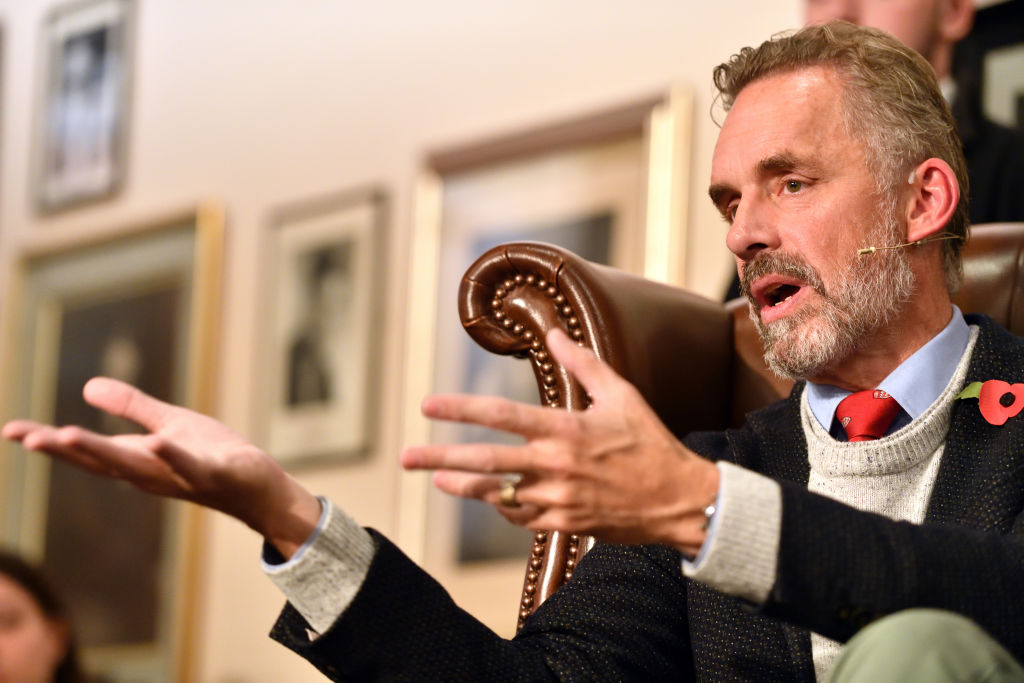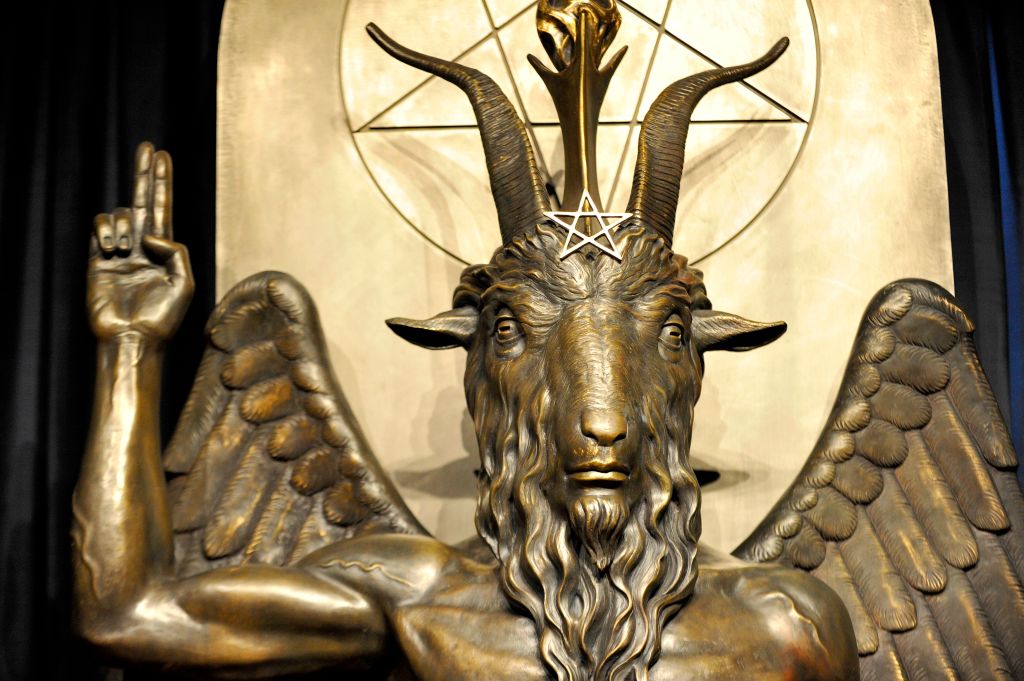The decay of the First Amendment is on display in Virginia.
Jesus Christ, Jordan Peterson

The apostle of precision hems and jaws about his religious belief.
Jordan Peterson is a divisive character. From his views on sex and free speech to his occasional crimes against fashion, the Canadian psychologist and influencer gravitates toward controversy.
During a recent interview with philosophe Alex O’Connor, Richard Dawkins—the biologist and avowed atheist who is also no stranger to controversy—took aim at Peterson. Specifically, he blasted Peterson’s views on Christianity, accusing the clinical psychologist of spouting “utter bullshit.”
Strong words—but also, to some extent, justified.
Since early 2016, when he first burst onto the scene, Peterson has gone through many stages: free speech advocate; anti-PC crusader; advisor on bedroom cleaning; fervent defender of biological differences between men and women; climate change realist; and, most recently, religious guru—part philosopher, part evangelical preacher.
Peterson now offers a host of lectures on the world’s most famous book: The Bible. Yet, rather oddly, as O’Connor and Dawkins pointed out, Peterson constantly refers to the Bible as “the biblical corpus,” not by its actual name.
Even more oddly, considering he has dedicated himself to educating the masses on the merits of reading the Bible, Peterson can’t answer some basic questions on the big book of beliefs.
For example, when Sam Harris asked him if he believed in the resurrection of Jesus, Peterson said that it would take him 40 hours to explain his answer. And here I was thinking a simple Yes or No would suffice. Moreover, as O’Connor and Dawkins highlighted, when asked if he thought Jesus was born of a virgin, Peterson said that it would take him “two days” to answer that particular question.
Which begs the question: What does Jordan Peterson believe?
In truth, we don’t know. I doubt Peterson actually knows himself.
I say this because the Alberta-born academic hasn’t even answered the “Are you a Christian?” question yet. He once called himself a “pragmatic Christian,” but the meaning of that—for someone who insists on linguistic precision—is woefully vague. An opposite of “pragmatic” could be impractical or idealized. Is Peterson critiquing “impractical” Christianity? They may deserve criticism, whoever they are, but Peterson never actually articulated what a pragmatic Christian looks like, or what he or she might believe in.
Does a “pragmatic Christian” believe in the Bible word for word, or do they pick and choose teachings that fit their worldview? If it’s the latter, is that still Christianity?
So many questions, very few answers.
Say what you want about Harris and Dawkins, but at least when they make a point about religion, you know where they stand (spoiler alert: they are against it). You mightn’t agree with them, but you come away with a very clear picture of their views. Atheists may be annoying, vaguely autistic, and smug, but they don’t skirt the essence of their non-belief.
During his conversation with O’Connor, Dawkins accused Peterson of using fancy language to essentially trick his followers—or dare I say, disciples. Instead of speaking in basic English and making his points in a clear, lucid manner, Peterson prefers to hide behind metaphors. In short, he’s being disingenuous. If I’m reading a book on the benefits of weightlifting or attending a lecture on whole versus term life insurance, I want to know where the author and speaker stand. Do they practice what they preach?
With Peterson, we simply don’t know.
Either you are a Christian or you aren’t. You can’t be a little bit pregnant, and you can’t be a little bit Christian. Labeling oneself a “pragmatic Christian” is a neat way of not answering a very specific question that demands a direct answer. Peterson not only hides behind metaphors, he also hides behind mythology. Mythology and religious belief are both tools used to dissect and support the human psyche. Peterson frequently references Jungian archetypes, and uses these primitive mental representations as a way of explaining human belief system.
Peterson’s research has led him to identify three fundamental archetypes: unexplored territory or chaos, explored territory or order, and the mediation between chaos and order. Peterson uses religion, and the Bible in particular, to bridge the gap between chaos and order.
The Canadian goes to great lengths to paint Jesus as a sort of superhero, somewhere between Sisyphus and Superman, a robe-wearing badass whose wise words can help guide us out of the darkness and into the light. Peterson is making religion sexy again, but still, amidst all this sophisticated sexiness, we don’t really know where he stands. Is Jesus the actual son of God, born of a virgin, or is he a mythical hero, a leading character in the greatest ever fictional story ever known to man?
The writer Andrew Menkis once compared Peterson’s philosophy of life to “eating a garden salad for dinner.” Though a leafy salad may be a refreshing starter, it teases rather than satisfies the appetite. Peterson’s message, he wrote, “is like an incomplete puzzle, one that almost allows us to see the whole image, but still needs a few more pieces.”
So what, some will say, who cares if Peterson speaks in tongues, dodges the question of God, and keeps offering salad when customers have specifically ordered steak?
But Jordan Peterson is one of the most influential figures in popular culture, and has built a global reputation talking about the need to take responsibility for our actions. Now is the time for him to do just that, to take responsibility, and to inform his audience of where exactly he stands when he speaks on the question of Jesus Christ.
Knowing Peterson, however, it could take anywhere between two and 40 days to get a definitive answer.
The American Mind presents a range of perspectives. Views are writers’ own and do not necessarily represent those of The Claremont Institute.
The American Mind is a publication of the Claremont Institute, a non-profit 501(c)(3) organization, dedicated to restoring the principles of the American Founding to their rightful, preeminent authority in our national life. Interested in supporting our work? Gifts to the Claremont Institute are tax-deductible.
Young Nietzscheans should look to Tocqueville as a more politically responsible source for a new politics.
The Bible, the ballot, the border.
Why East-Central Europe has proven resistant to woke doctrine.
A new political vocabulary is needed for a world itself quite new.
Feel-good platitudes aren’t enough to sustain a healthy society.






